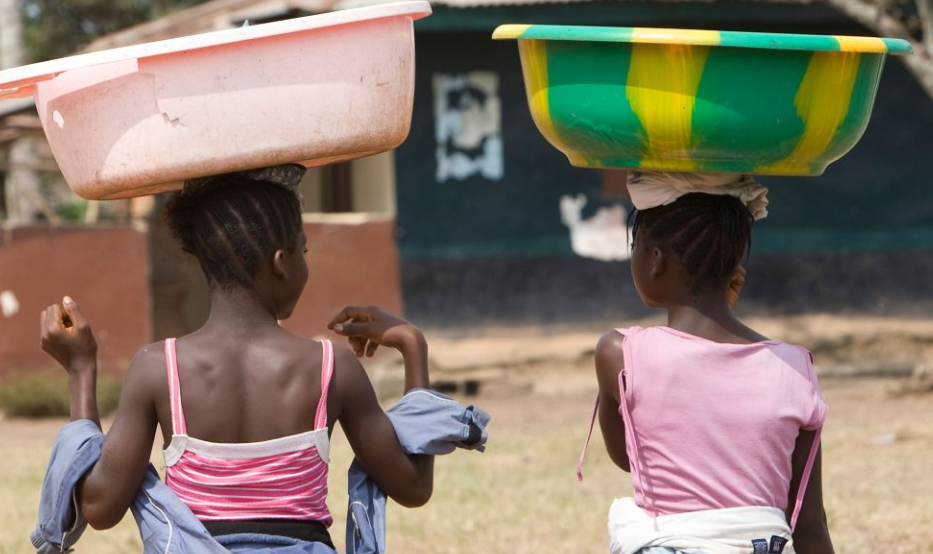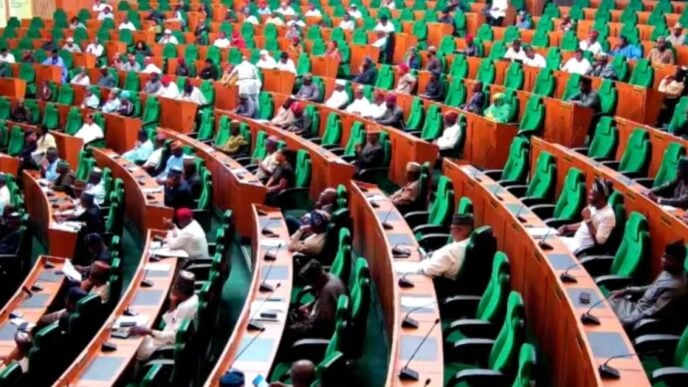BY LEKAN OLAYIWOLA
Domestic work in Nigeria is a paradox: essential yet undervalued, widespread yet invisible. With over four million domestic workers nationwide, the sector is sustained by informal arrangements, verbal contracts, and trust-based referrals. These culturally embedded practices, while familiar, leave workers, particularly girls, exposed to exploitation, fraud, and abuse.
What appears to be a labour issue is, in truth, a national moral crisis. Nigeria is normalising the extinction of its daughters through care work, burying their futures in elite homes, behind closed doors. This is not merely a question of employment—it is a test of national character and institutional courage.
A north-south divide in exploitation
Advertisement
The geography of exploitation reveals a troubling divide. In northern Nigeria, girls are often dispatched by older male relatives to distant states under the pretence of earning money for education. In reality, many are forced into servitude, working long hours without pay or schooling. Decisions are made without consulting mothers or the girls themselves, and ignorance plays a devastating role.
One such case is that of Amina Ado, a nine-year-old girl trafficked from Kano to Lagos, who endured years of physical abuse, starvation, and sexual assault before escaping. Her story, documented by More to Her Story, underscores the systemic failures that allow such exploitation to persist unchecked.
In the south, the exploitation takes a more digital form. Job seekers are lured through WhatsApp and Facebook with promises of high-paying roles. Many pay search fees or travel long distances, only to discover the job doesn’t exist or has been misrepresented. These scams are orchestrated by unlicensed recruiters who prey on Nigeria’s high unemployment rate, projected to reach 40.6% by the end of 2025.
Advertisement
This divide is not merely geographic—it is a fracture in the nation’s social contract. And it demands a civic response that is both national in scale and local in sensitivity.
Working conditions and compensation
Across Nigeria, domestic workers perform a wide range of tasks—from cleaning and cooking to childcare, guarding, driving and business support—yet their compensation rarely reflects their workload. Most earn between ₦20,000 and ₦80,000 monthly, with some receiving as little as ₦10,000. Payment structures vary, and benefits such as meals, housing, or transport are inconsistently provided. Abuse is not uncommon: 22.5% of workers in Lagos reported being fed overstayed food, 11% experienced delayed wages, and 8.3% faced sexual harassment.
Despite its invisibility in formal economic metrics, the domestic work economy contributes significantly to Nigeria’s GDP. With the country’s total GDP projected at $187.76 billion USD in 2024, and the services sector accounting for 53% of that figure, domestic work—embedded within informal labour—can be reasonably estimated to represent between 6.5% and 8.4% of service-related output. This translates to an annual contribution of $6.5 billion to $8.4 billion, or roughly ₦9.75 trillion to ₦12.6 trillion naira.
Advertisement
Yet this wealth is built on ghost labour—unseen, underpaid, and unprotected. A just economy cannot be built on invisible backs. Nigeria must begin to make every sweat that contributes to its GDP count.
Legal awareness and protection gaps
In Lagos, Plateau, Bauchi, Enugu, Abuja, Rivers and Kaduna, only 30% of respondents are aware of any laws regulating domestic work. A staggering 51% are completely ignorant of existing regulations, and 9% cannot even distinguish between organisational oversight, such as NAPTIP and legal frameworks. This ignorance is not accidental; it is engineered by neglect.
However, 10% of respondents demonstrate rights-based behaviour and express a willingness to learn and comply with relevant laws, revealing a clear opportunity for civic education and institutional outreach.
Advertisement
Countries like Uruguay and the Philippines have shown that legal literacy campaigns, paired with enforcement, can transform domestic work from a shadow economy into a pillar of inclusive growth. Nigeria must follow suit, not just with awareness, but with accountability.
Recruitment practices and agency challenges
Advertisement
Recruitment remains deeply informal. Employers often rely on personal networks, and agencies that attempt to formalise their processes face resistance from clients who view standard procedures as too rigid or expensive. Bureaucratic delays further hinder progress; certification can take months, and infrastructure to support ethical recruitment is lacking. Some agencies charge up to 50% of a worker’s first month’s salary, while others demand annual cuts, exacerbating financial strain on already vulnerable workers.
This is not merely inefficiency; it is institutional complicity. South Africa’s model of licensing and regulating private employment agencies, backed by penalties for abuse, offers a blueprint for Nigeria. Ethical recruitment should not be the exception; it must become the norm.
Advertisement
Law enforcement and institutional barriers
Efforts to tackle recruitment fraud are hampered by systemic issues. Law enforcement agencies face inter-agency rivalry, poor data reporting, and limited technical capacity. The absence of reliable tracking tools makes it difficult to investigate complex fraud schemes. Even where reporting systems exist, many domestic workers are unaware of how to access them. As one respondent noted, “Systems exist, but people don’t always know where to go.”
Advertisement
This is not just a gap; it is a breach of civic duty. Nigeria must build a unified reporting and redress system, accessible in local languages, and integrated across agencies. The Philippines’ Barangay-level grievance system and Uruguay’s mobile legal clinics demonstrate that justice must be reachable, not rhetorical.
Legislative reform and the promise of the Domestic Workers Bill
The Domestic Workers Bill, which recently passed its second reading in the National Assembly, offers a path forward. If enacted, it will mandate formal contracts, guarantee minimum wage, regulate working hours, and provide access to health insurance and social protections. It also includes provisions for collective bargaining and aligns Nigeria with international labour standards, particularly ILO Convention 189.
But legislation alone cannot heal a nation that has forgotten its daughters. Nigeria must not only ratify Convention 189—it must domesticate it with urgency, enforce it with integrity, and fund it with resolve. The law must not be a monument, but a movement.
Toward a just and dignified future
Reforming Nigeria’s domestic work economy requires more than policy—it demands moral clarity. It demands a new social contract that recognises domestic workers not as servants, but as citizens. One that sees the girl child not as labour, but as a legacy.
By affirming the dignity of domestic workers, Nigeria affirms its commitment to equity, unity, and institutional trust.
Lekan Olayiwola is a public-facing peace & conflict researcher/policy analyst focused on leadership, ethics, governance, and political legitimacy in fragile states.
Views expressed by contributors are strictly personal and not of TheCable.











